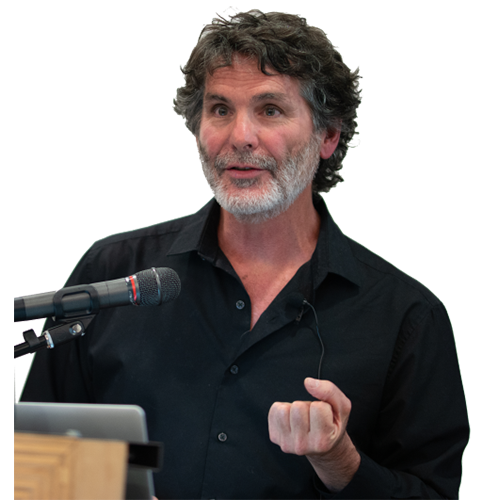Time to read: 4 minutes.
mentoring & advising collection.
I am a hands-on entrepreneur, focusing on value creation, including business drivers, technology and methodology.
I have advised and mentored individuals, founders, VCs, private investors, and open-source groups. Defining new products and bringing them to market is my main interest, but sometimes the road to product starts with service.
These types of ventures have many moving parts. I can provide suggestions for the following: leadership, culture and values, market research, business plan, product management, prototyping, testing, optimizing, packaging, manufacturing, selling, supporting, customizing, product evolution, and nurturing a portfolio of intellectual property.
Past Work
Some ventures that I have advised or led include:
- Daiya Foods
- I was one of three co-founders and was the first CEO of Andre’s Foods, which was later renamed to Daiya Foods. The company is a manufacturer of non-dairy cheese and other plant-based food products. I introduced a focus on filling semi-trailers full of product for delivery to paying customers. Daiya was sold to Otsuka in 2017 for $325.5M USD.
- PureEdge Solutions
- I mentored a group consisting of BC Systems staff and University of Victoria graduate students. I assisted with the formation of and guided the first year of what became PureEdge Solutions, Inc. PureEdge was sold to IBM in 2005.
- Transium
- I was hired as interim VP Engineering to prepare the Silicon Valley company for sale. For this assignment, I mentored the entire company in some form or fashion. Alta Vista purchased Transium, and later Yahoo! acquired Alta Vista.
- NCompass Labs
- As a contractor, I was the first person to use NCompass Labs’ new ‘Resolution’ product, and I used it to create the NCompass Labs website. I interfaced with the President, VP Sales, CFO, VP Technology, graphic artists, programmers and customer support representatives. I trained and mentored dozens of staff. NCompass Labs was purchased by Microsoft in 2001, and the product was renamed Microsoft Content Management Server the following year.
- Member of the British Columbia Premier’s Technology Council
- I provided input to BC Premier Gordon Campbell on technology matters.
- Association of Professional Engineers and Geoscientists of British Columbia
- During the time that I was an accredited Professional Engineer, I formally took on the role of an APEGBC Mentor to help new engineers learn professional practice.
- National Research Council of Canada
- Advised startups in concert with NRC advisors. Through the connections I made, I participated as a “Dragon” at the 2007 Simon Fraser University Dragons Den.
The Right Questions
As a mentor or advisor, I don’t feel the need to provide the right answers; instead, I focus on developing the right questions. Often there are no right answers, but upon reflection, some clearly wrong answers might be recognized. Socratic dialog can be particularly effective for this purpose. This knowledge can be helpful when setting the boundaries of a venture. The intention is to ask a series of questions that unfold the essential nature of an initiative and to pare down details until the value proposition, such as it is, reveals itself.
Then I ask more questions to tease out alternative opportunities and alternative approaches. For example, I might ask, “What would be the most effective way to compete against your venture?” or “What would be the most profitable way to compete against your venture?”
Inquiry Approaches
There are several types of inquiry approaches to mentoring and advising, including: guided inquiry, bounded inquiry, and open-ended inquiry. The key differences are:
- Who has ownership over the aspects of the activity–the mentor or the protégé(s)?
- The goal of the activity: to demonstrate existing knowledge, to teach the process of knowledge construction, or to generate new knowledge?
In general, guided inquiries begin with starting questions, followed by discussions with ideas and methods. In contrast, open-ended inquiry is less structured and the intention is for the protégés to come up with initial and follow-up questions, design experiments, analyze the data and so on. Bounded inquiries are a blend of guided and open-ended inquiries that allow protégés to investigate a topic with little or no guidance from the mentor.
At first, I might actively shape the conversation around a topic via a guided inquiry and later introduce open-ended inquiry. I used this approach when I led a roundtable discussion in Silicon Valley on open-source licensing models for the late Douglas Engelbart at his Bootstrap Alliance in 2007. Doug is most well-known for his "Mother of all Demos," where he demonstrated the first computer mouse.
Grandiose Generalities
It is very difficult to go from generalities to specifics.
Specifications can be implemented, assessed and optimized. Generalities are grandiose but difficult to implement because trade-offs cannot be used to provide value efficiently. Ideology should be avoided.
Instead, I recommend focusing on generating concrete value from a narrowly defined set of use cases. In other words, start somewhere and make that work before considering whether to expand the scope.
If an entrepreneur determines that the current set of use cases is not producing recognizable value, it is better to shift focus to another specific set of use cases than to expand the scope.














